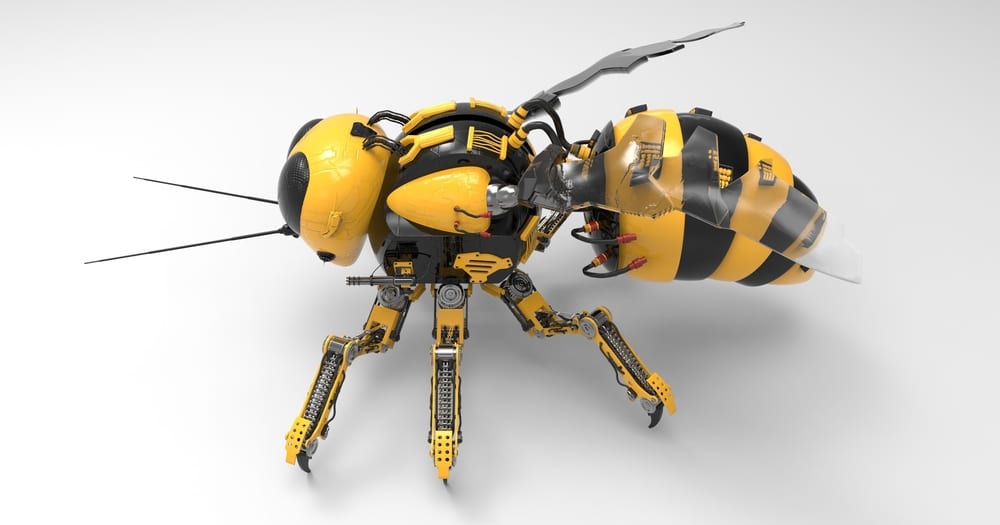
Robot bees used to be the stuff of science fiction—but not any more.
No, this isn’t an episode of Black Mirror, US retail giant Walmart has filed for a patent for autonomous robotic bees.
Walmart’s patent was filed on March 8 with the US Patent Office, awaiting approval.
Technically called pollination drones, the robots could potentially pollinate crops like real bees by carrying pollen from one plant to another, using sensors and cameras to detect the locations of the crops.
The drones would also be fitted with ‘sticky bristles’, enabling them to draw out the pollen and retain it until they fly to another flower.
A secondary drone would be programmed to follow along ensuring the pollen had been properly distributed.
This would provide an ingenious solution to the worrying decline in bees and other insects, which fertilize the crops that make much of the food Walmart sells.
It makes sense for the retailer to protect its interests in this way—especially considering its recent push to invest in its supply change because of increased competition from online retailer Amazon.
In an apparent effort to branch into agriculture, Walmart’s robot bee patent appears alongside five other patents for farming drones.
The other patents include a drone that would identify pests and another that would monitor crop health.
But Walmart is not the first organisation to create a robot bee.
Researchers at the Wyss Institute at Harvard University have already created drones that act like bees.
These ‘Robobees’, as they call them, are about half the size of a paper clip and weigh less than one-tenth of a gram.
They use artificial muscles to fly, and some can swim underwater and perch on surfaces thanks to static electricity.
In 2017, a team at Japan’s Institute of Industrial Science and Technology demonstrated a 1.5-inch drone that was used to cross-pollinate Japanese lilies.
But these models proved too expensive and inefficient to suitably tackle the concern of the declining bee population.
Perhaps Walmart has the solution.




.jpg)










